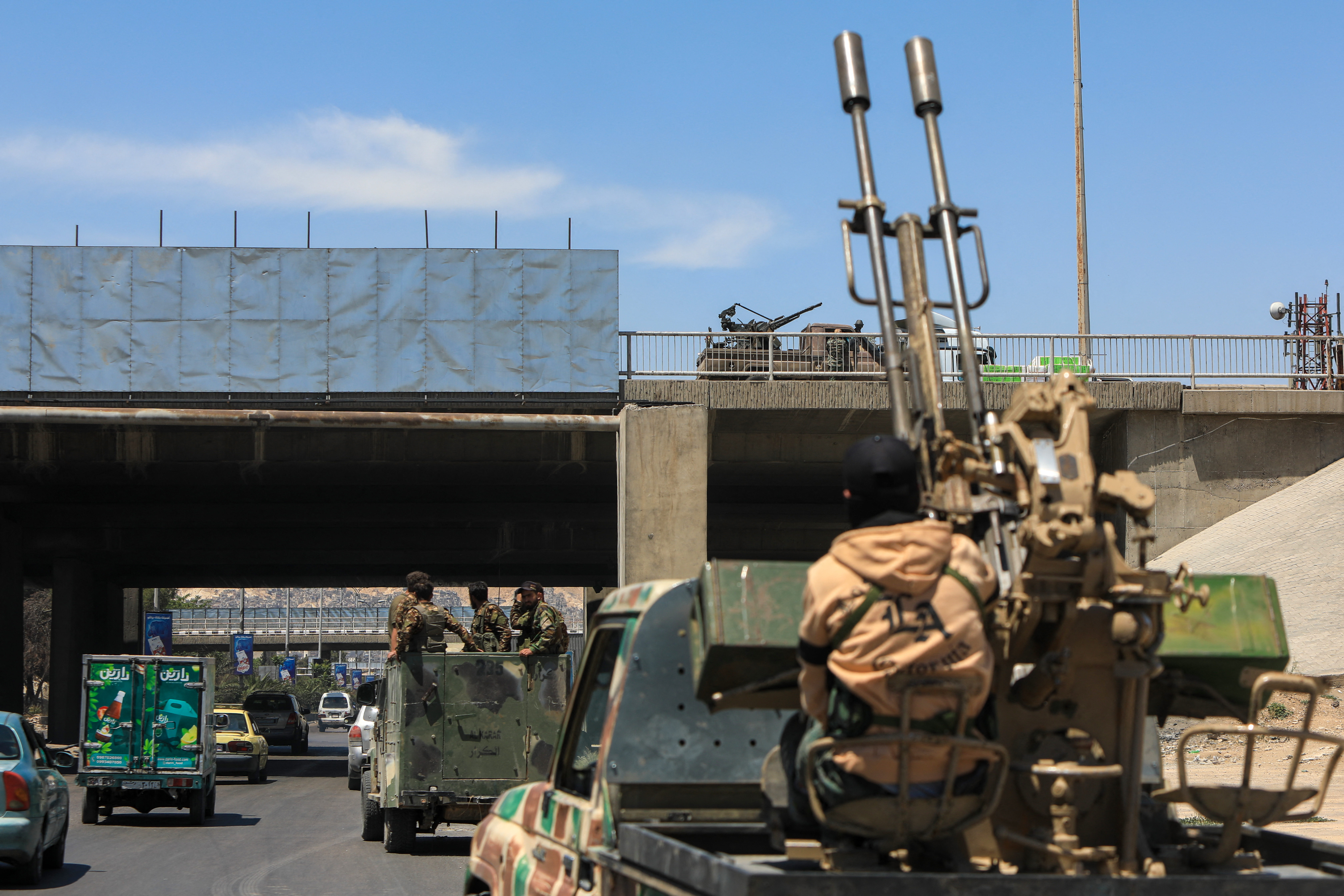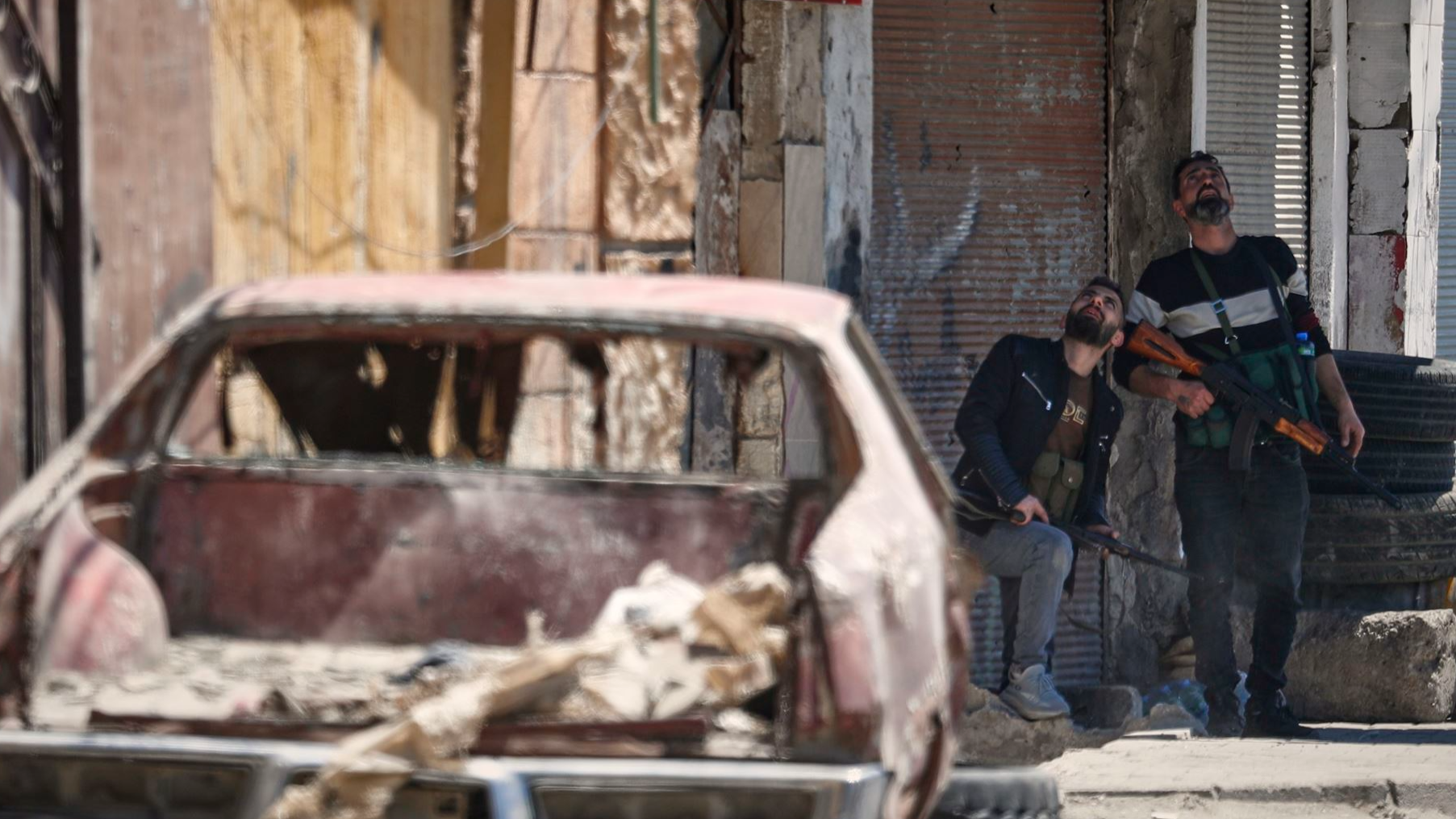
JERUSALEM / DAMASCUS - Israel conducted an airstrike near Damascus on Wednesday, targeting what it described as a "radical group" preparing to attack a Druze community, according to Israeli officials.
Citing Israeli intelligence sources, Israel's state-owned Kan TV news reported that a drone launched a missile at a structure near the Syrian capital, causing no casualties.
A joint statement from Prime Minister Benjamin Netanyahu and Defense Minister Israel Katz described the strike as a "warning attack" carried out under Netanyahu and Katz's directive.
"A stern message was also delivered to the Syrian regime," the statement said. "Israel expects it to act to prevent harm to the Druze population."
The statement emphasized that the strike coincided with Israel's annual Memorial Day, when the country commemorates fallen soldiers, including many Druze who served in the Israeli military.
ALSO READ: Syria welcomes Britain's lifting of sanctions on 12 entities
"Israel will not allow harm to come to the Druze in Syria, out of a profound obligation to our Druze brothers in Israel, who share historical and familial ties with the Druze in Syria."
There was no immediate comment from the Syrian government.
The Israeli attack came a day after at least 14 people were killed in sectarian clashes in a predominantly Druze Jaramana suburb of Damascus between local gunmen and pro-government security forces.

Clashes intensified late Tuesday and early Wednesday in the southern suburbs of Damascus amid rising sectarian unrest, according to a major monitoring group in Syria.
Renewed clashes involving light and medium weapons, including RPGs, were reported in Ashrafiyat Sahnaya, according to the Britain-based Syrian Observatory for Human Rights (SOHR).
Gunfire and at least one explosion, believed to be caused by a mortar shell, were reported in Sahnaya and Ashrafiyat Sahnaya, prompting the General Security Directorate to enforce night curfews in both towns.
SOHR reported that the death toll from the ongoing violence had risen to 18, including nine residents from the areas of Jaramana, Sahnaya, and Ashrafiyat Sahnaya, and nine members of pro-government forces.
READ MORE: Pentagon: US to halve its troops in Syria
At least 15 others were wounded, with several in critical condition. The casualty figures are expected to rise due to continued instability.
The clashes followed earlier unrest in Jaramana, reportedly triggered by the online circulation of an audio recording deemed offensive to Islam, allegedly made by a member of the Druze community.
The incident fueled sectarian tensions across several parts of Syria, including university cities like Aleppo and Homs, and now appears to be spreading further.
In a related development, unidentified gunmen reportedly targeted al-Thaala military airport in the countryside of the Druze-dominated Suwayda province with medium weapons and mortar shells, although no casualties have been confirmed so far. Syrian Ministry of Defense units are stationed at the base.
READ MORE: Report: At least 9 civilians killed in Israeli air raids on S. Syria
In anticipation of further violence, Interior Ministry forces were deployed along the edges of Jaramana, and residents began fleeing the area. Several families left the town, and three buses carrying Druze university students returned to their home provinces amid fears of reprisals, according to SOHR.
The latest wave of unrest has heightened concern about the potential for broader sectarian conflict, as local authorities and community leaders work to prevent the situation from spiraling further out of control.
Earlier on Tuesday, Syrian authorities and local community leaders in the Damascus suburb of Jaramana reached an agreement in a bid to restore calm after recent deadly clashes.


